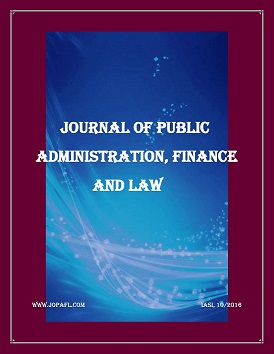Cultism and Education in Nigerian Tertiary Institutions: Policy Implications
Cultism and Education in Nigerian Tertiary Institutions: Policy Implications
Author(s): Osezua Ehiyamen MediayanoseSubject(s): Higher Education , State/Government and Education, Social development, Sociology of Education
Published by: Editura Tehnopress
Keywords: Cultism; Education; Tertiary Institutions; Policy; Students;
Summary/Abstract: The existence of cultism and cults in our universities poses continuous threat to life and peaceful co-existence. Unfortunately, in spite of the provision of five-year jail term for membership of campus cults, cultism continues to assume a major social menace and a serious obstacle to peace and harmony in many tertiary institutions in Nigeria. Whereas cult groups and activities were more purposefully oriented at the initial stage, they have become destructive and violent in the recent past, especially from the eighties. Admittedly, the menace has attracted the concern of all stakeholders within and outside the educational system, and its increasing negative impact on education evidently manifest in disruption of academic activities; programmes/calendars, insecurity on the campus, destruction of school infrastructural facilities, loss of lives, etc. More so, students who are members of cult groups frequently have problems with their studies, as they have to abscond from school during period of cult clashes for their safety and incur extra year(s) for failure to write final exams as well as meet other requirements for graduation as a result of fear of being attacked by rival cult members. Meanwhile, reliable sources reveal that no less than 53 cult groups exist in the Nigerian higher educational system. This threatening and awful situation in Nigerian tertiary institutions forms the thrust of this paper. It further concludes that probable factors that motivate the emergence and sustenance of secret cults/cultism in the educational system are traceable to the general moral decadence in the society, the value system in the society, the learning environment and poor educational administration and management. The study finally offers policy recommendations that provision of enabling learning environment; more parental responsibility and training; collaborative efforts of tiers of government and stiffer sanctions; student orientation and re-orientation by stakeholders in the Education sector are key in curbing cultism rate in Nigerian tertiary institutions.
Journal: Journal of Public Administration, Finance and Law
- Issue Year: 2016
- Issue No: 10
- Page Range: 42-54
- Page Count: 13
- Language: English

